
As I’ve noted on this site before, it’s remarkable how Genesis transformed from a smalltime band to commercial heavyweights. By 1971, they’d found their classic quintet of vocalist Peter Gabriel, drummer Phil Collins, keyboardist Tony Banks, bassist Mike Rutherford, and guitarist Steve Hackett. But their first album together, Nursery Cryme, missed the UK charts initially. Fifteen years later, Peter Gabriel and Phil Collins were solo stars, spin-off bands like Mike & the Mechanics and GTR were successful, while Genesis marked 1986 with the massive-selling Invisible Touch.
While I enjoy Genesis’ pop era, much of my affection is given to their early progressive rock years. The band didn’t quite have the instrumental firepower of contemporaries like Yes, but their ear for a tune and Gabriel’s clever lyrics and emotive voice made them compelling listening. There are lengthy prog tunes on this list, but also succinct pop songs with short-running times and catchy tunes – it’s not surprising that Genesis also became a successful pop band.
Here are ten of the best songs from their progressive rock years. I mark their progressive rock era as occurring from 1970’s Trespass to 1976’s Wind & Wuthering, although neither album places on this list. Condolences to ‘Watcher of the Skies’ and ‘Fountain of Salamacis’, both unlucky to miss out on this list.
As this post’s title implies, stay tuned for 10 Best Pop-Era Genesis songs.
10 Best Prog-Era Genesis Songs
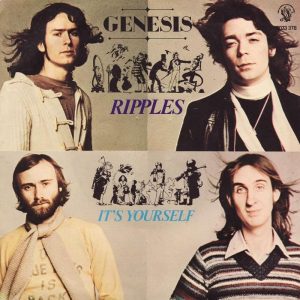
#10 Ripples…
from A Trick of the Tail, 1976
A Trick of the Tail, Genesis’ first album after Gabriel’s departure, is impressive. While they lack Gabriel’s lyrical panache, A Trick of the Tail is filled with well-written songs, sung well by Collins. ‘Ripples’ is barely progressive rock – it’s essentially a contemplative pop song, about ageing, delivered at a stately tempo.

#9 I Know What I Like (In Your Wardrobe)
from Selling England by the Pound, 1973
Genesis’ first hit single, ‘I Know What I Like’ almost cracked the top 20 of the UK singles chart in 1974. It’s a whimsical tale of an unambitious lawnmower – the line “You can tell me by the way I walk” was later used as the title for a pair of Genesis live albums. It’s a group effort – Hackett wrote the guitar riff, Rutherford plays electric sitar, and Gabriel contributes a flute solo. Collins’ harmonies are a key ingredient, while Banks’ mellotron supplies the lawnmower-like sound in the track’s opening. The b-side, ‘Twilight Alehouse’, is a worthwhile outtake too.
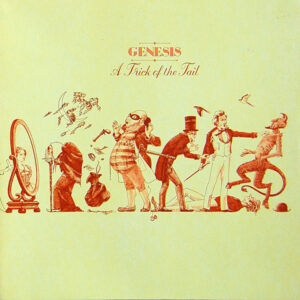
#8 Dance on a Volcano
from A Trick of the Tail, 1976
Turning on the first post-Gabriel Genesis album, listeners were greeted by the dissonant verses of ‘Dance on a Volcano’, the first song written for the album. Collins also played in the fusion band Brand X in the 1970s, and ‘Dance on a Volcano’ is as close as Genesis came to jazz fusion. Collins’ drumming is outstanding, making the complex 7/8 rhythm funky and propulsive.

#7 Can-Utility and the Coastliners
from Foxtrot, 1972
‘Can-Utility and the Coastliners’ tells the tale of King Canute. Canute ruled England, Norway, and Denmark in the 11th century. He’s famous for a story where he’s unable to control the waves. Interpretations vary this is to quell his sycophantic followers or initiated by his courtiers to prove that he’s human. ‘Can-Utility’ was largely written by Hackett – there’s enough to suggest that he’s the band’s second-best lyricist after Gabriel. The instrumental sections are impressive – Collins’ drums hit hard, and there are tuneful solos from Banks and Hackett.

#6 The Lamia
from The Lamb Lies Down on Broadway, 1974
Peter Gabriel wrote all the lyrics for Lamb, allowing his twisted imagination free rein. The lamia are from classical mythology, a female daemon who devoured children. Gabriel’s lyrics are terrific – “each empty snakelike body floats/silent sorrow in empty boats” is an especially evocative line. The track closes with an evocative solo from Hackett that captures the song’s exquisite sadness.
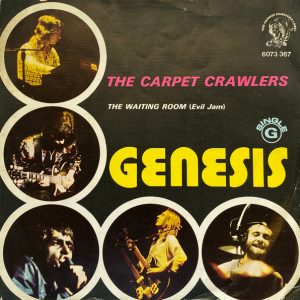
#5 The Carpet Crawlers
from The Lamb Lies Down on Broadway, 1974
‘The Carpet Crawlers’ juxtaposes gorgeous music with some nihilistic lyrics. Gabriel’s lyrics use Biblical imagery – the eye of the needle and the wise and foolish virgins – but the afterlife that Rael is trying to attain is bleak and uncertain. The music, however, is gorgeous, with Gabriel hitting some lovely notes at the bottom of his range and Collins supplying lovely harmonies. In 1995, the band re-recorded ‘The Carpet Crawlers’ as a duet between Gabriel and Collins to accompany their Greatest Hits album.
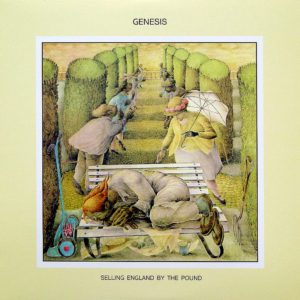
#4 Dancing With The Moonlit Knight
from Selling England by the Pound, 1973
Like The Kinks’ Village Green Preservation Society, ‘Dancing With the Moonlit Knight’ reflects a yearning for olde England. It starts with Gabriel singing a capella about unifauns and “selling England by the Pound”. As you’d expect from progressive rock, ‘Dancing’ builds into something bigger; Hackett told Something Else that “Then it bursts forth, it fights off its shackles, really takes off like a rocket”.
#3 The Cinema Show
from Selling England by the Pound, 1973
‘The Cinema Show’ was planned as the second half of ‘Dancing With the Moonlit Night’, but the tracks were left seperate to avoid comparisons with ‘Supper’s Ready’. ‘The Cinema Show’ works in spite of some dopey lyrics (“But there is in fact more earth than sea”?), with a gorgeous vocal melody delivered sensitively by Gabriel. He hits some gorgeous high notes on “can he fail armed with his chocolate surprise?”

#2 Lilywhite Lilith
from The Lamb Lies Down on Broadway, 1974
It feels odd having a sub-three-minute song so high on this prog-era Genesis countdown – really ‘Lilywhite Lilith’ is only 90 seconds before the coda that bridges to the next track. But it’s thrilling, packing in two quick verses and choruses. Hackett’s guitar tone is chunkier and Collins’ drums hit hard, while the chorus vocals are intricately arranged.

#1 Supper’s Ready
from Foxtrot, 1972
It’s difficult to imagine a Genesis list without this 23-minute apocalyptic epic taking the top spot – Tony Banks refers to it as “probably our peak”. It was inspired by dreams that Gabriel’s wife experienced while sleeping in a purple room, possibly as part of a bad drug trip, and it interpolates themes from the Biblical book of Revelation. It’s divided into seven different sections, with recurring musical themes. Particularly notable are Gabriel’s wordplay in the English music hall of ‘Willow Farm’ and the triumphant conclusion of ‘As Sure as Eggs as Eggs (Aching Men’s Feet)’.
Did I miss your favourite prog-era Genesis song?
Read More
41 Comments
Leave a Reply
About
Aphoristic Album Reviews is almost entirely written by one person. It features album reviews and blog posts across a growing spectrum of popular music.
Review Pages
Read about the discographies of musical acts from the 1960s to the present day. Browse this site's review archives or enjoy these random selections:
Blog Posts
I add new blog posts to this website every week. Browse the archives or enjoy these random selections:
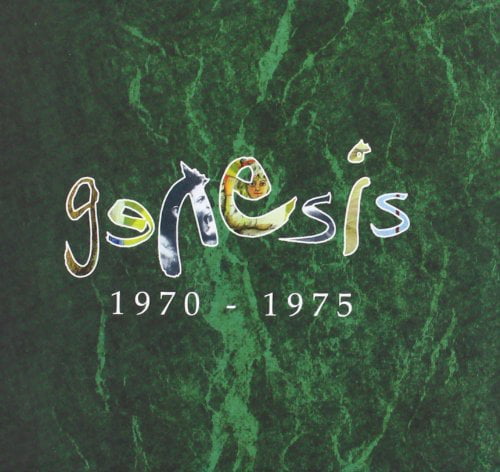
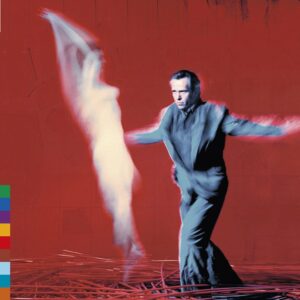
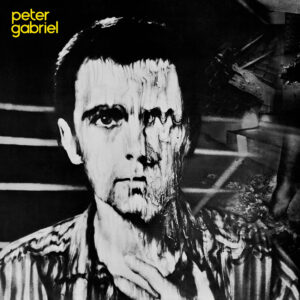
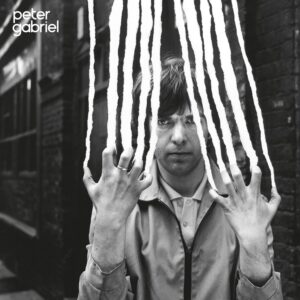
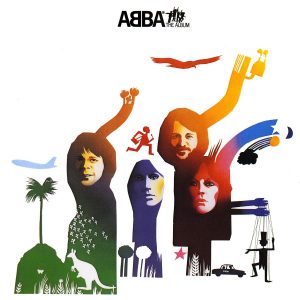
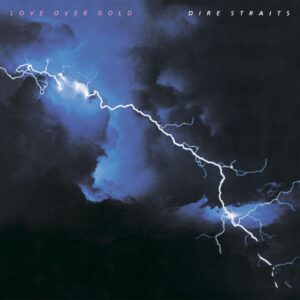
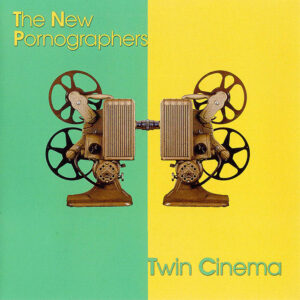
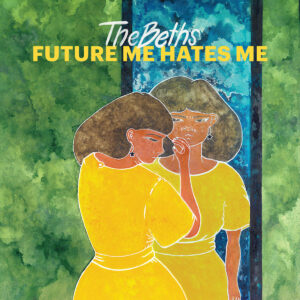
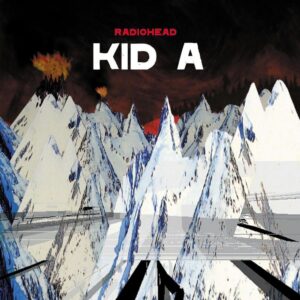
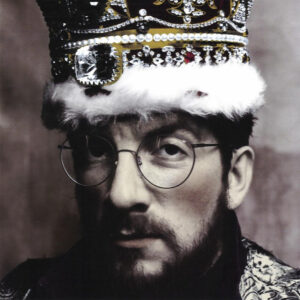
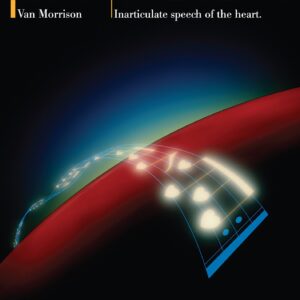
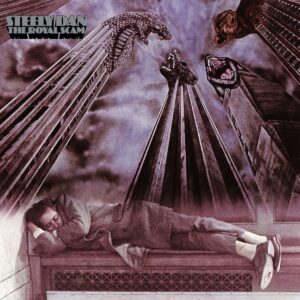
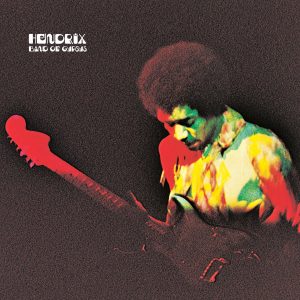

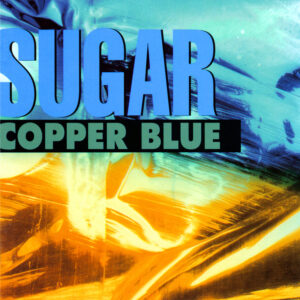
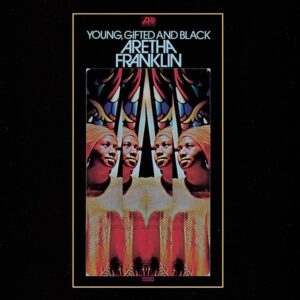




I prefer Genesis’s prog 70s years as well. I am of the opinion that Phil Collins turned them in to a top 40 band.
I think Tony Banks had much more influence in the pop area, Collins was just better at it.
Collins and Gabriel both started bringing some R&B into their music in the 1980s with stuff like Sledgehammer and Easy Lover.
You could argue Rutherford was the pop catalyst initially, writing Your Own Special Way and Follow You Follow Me.
I guess intimately they all wanted to be a pop band except Hackett it seems
There was an interesting liminal period there, with Duke and ABACAB.
I had “And Then There Were Three.” It was ok, nothing special.
Yeah, that one’s OK, but the next two were a lot stronger I think.
A truly solid list however now Watcher of the Skies and I really love Mad Man Moon for some reason and where is The Musical Box, nice connection with the Kinks Banks has always mentioned them as an influence.
The only ones I really love are I Know What I Like and Carpet Crawlers and Lamb Lies Down, and a whole bunch of those little short ones on the second disc of that album.
At least I had some of your favourites….
I really like Mad Man Moon too. The three epics on Nursery Cryme would all have been worthy additions, as well as ‘Harold the Barrel’.
Nice playlist, Graham. Genesis are one of the very few prog rock bands I warmed to. I also prefer their early (Peter Gabriel) period. While they undoubtedly had catchy tunes in the late ’70s and ’80s, at some point, Phil Collins was way too overexposed between his solo work, duos with other artists and Genesis. It almost came to a point where I could no longer stand listening to him.
I really like Duke and ABACAB in the early 1980s – they’re like a fascinating pop/prog hybrid. Parts of the 1983 Genesis album too.
Collins hits like ‘A Groovy Kind of Love’ drove me a bit crazy, but he’s clearly very talented. Less of an auteur/visionary that Gabriel, but more musically talented. A bit like Waters and Gilmour in Pink Floyd.
Ever since you posted one of their very likable B sides…I’ve listened to more of them during this period…I’ve had enough of their top 10 period.
I like most of these quite a bit…something I never thought I would say a few years ago. Their melodies were really good. When I thought of prog a few years ago…I thought of ELP.
Cool, I think the punk vs prog dogma is kind of silly – I had a workmate who would rail against the excesses of prog. Surely in this day and age you can just take what appeals. Genesis (and Yes) had good tunes and good harmonies. Making this list made me appreciate Collins as a harmony vocalist more – he’s clearly very talented.
Not to mention his drumming which was even more impressive in the earlier days.
Ooo, good list idea, both this one and the pop one to come. I especially like seeing “Lilith” so high. An under-appreciated gem of a song.
For all the (undeserved) Phil-era hate that lots of Peter-era fans embrace, I think the trio remained legitimately proggy through “Abacab.” The self-titled album was the one where they kinda sorta lost me. And I think the record will show that that’s when they started working in their own studio, co-writing everything, essentially buildings songs from jams, rather than from melodies. The keyboard textures changed (sounds being produced from single programmable digital-era keys rather than from a variety of unique and distinct synths and organs and pianos and mellotrons and such), the general audio space got more clean and pristine, and it all began to sound much the same.
But, anyway, as to your question of the day, here’s my Top Ten from “Trespass” to “Wind” . . .
10. It
9. Supper’s Ready (If I could chunk this one, the Apocalypse/Eggs section would score much higher, and probably the Lovers/Eternal/Ikhnaton section as well; but it loses me in the middle with Beautiful/Willow).
8. Lilywhite Lilith
7. Firth of Fifth
6. Stagnation
5. The Lamb Lies Down on Broadway
4. Dancing With the Moonlit Knight
3. Back in NYC
2. The Carpet Crawlers
1. Afterglow
I quite like most of the self-titled, but the sterile and streamlined production of Invisible Touch makes it uninteresting listening, even if the material is generally good.
I was surprised by your number one – I probably haven’t given Wind & Wuthering a fair shake. I never owned a CD copy, and I think it needed a reshuffle. I would have included ‘Inside and Out’, and dropped stuff like ‘All in a Mouse’s Night’ and ‘One for the Vine’.
I love the piano intro to ‘Firth of Fifth’ but don’t really like Banks’ lyrics. Same issue with ‘One for the Vine’. ‘It’ and ‘Lamb’ are good tracks that I couldn’t fit.
Try though I might – and I’ve tried – I never really warmed up much to Genesis. And I’m a prog fan. That said, this will be a nice list to listen to. I recognize some. And people who berate Phil Collins conveniently overlook his great drumming and singing. Bands evolve. Get over it.
As Christian said, Collins got a bit over-exposed in the 1980s. I feel like younger generations have embraced THAT drum solo, and forgotten some of his sappier solo hits like ‘A Groovy Kind of Love’. He’s clearly very talented. Early 1980s Genesis albums like Duke and ABACAB are great, but their last few records are less convincing (although Collins wasn’t involved with the final one).
This is not an uncommon phenomenon. Perhaps the “fall” was greater in Collins’ case ‘coz they were prog-rock. But when I talk about, say, Rod Stewart a lot of people think of his disco period or his standards. They neither know nor care that he started out doing blues with Jeff Beck or put out some great solo albums. Likewise, Chicago who just buried themselves in Peter Cetera gooey crap. Their first several albums showcase a dynamic horn-driven ensemble that mom would not dig. Precious few bands maintain their integrity. Neil Young has as did R.E.M. Hmm, might be a good idea for a post.
I would argue that Gabriel’s largely kept his integrity intact. Genesis’ worst album came after Collins quit, with the guy from Stiltskin.
Most bands that last less that a decade probably quit while they’re ahead. U2 are probably hurting their legacy at this point – they’re not necessarily distracting themselves but have released a long string of records that noone seems to care about. Solo artists tend to be more adaptable and likely to jump on a bandwagon – I can’t imagine the Faces going disco. I guess the Stones did with Miss You, but they kept their own identity in there.
Yeah, I love u2, but they appear to have run their course. At least the Stones have the sense to realize they’re essentially a nostalgia band. U2 have been together, what, 40 years? Imagine if the Beatles had done that, had they all lived. So by the early 2000s we’d all be saying “enough already.” Know when to leave the stage.
As to the Stones in general, by his solo albums, Mick proved he’d go the dance route. Keith keeps him grounded, reminding him they’re essentially a blues/rock and roll band. I was never a big fan of ‘Miss You’, but it was absolutely one of the best tunes on their last tour.
Feels like slowing down the album cycles is a good move. Most fans want to hear the old stuff anyway.
Generally speaking, the newest sing the Stones ever do is about 40 years old. Even Springsteen manages to work in newer stuff..
Wot? No Fountain of Salmacis?
I did mention it, along with ‘Watcher of the Skies’, in the preface – those two would be #11 and #12.
I would have included the Firth of Fifth, mostly based on Steve Hackett’s amazing guitar solo.
A fine list.
Thank you sir!
I like the phil collins genesis most but the prog era is very good they are all fine musicians and songwriters they did go commercial but in a good way as they still made good music
I like the early 1980s albums a lot but they lose me with Invisible Touch (too polished and processed) and We Can’t Dance (too long and pretty similar to a Phil Collins solo album).
I know nothing of this prog-rock period of Genesis, so will defer to your judgement here. The first song I ever remember hearing by them is “Follow You, Follow Me” in 1978.
That will be on the pop-era list. They did have a #21 UK hit in 1974 but got bigger in the US once Collins took over on vocals.
You know I cant ever do this. I like so much of their early stuff. Lyrics from ‘Battle Of Epping Forest” have been swirling in my head since the release of ‘Selling England’. Was talking that album with Bruce a while back. Good playlist but I’m easy. I dont know how songs like ‘The Knife’ hang with folks these days but I wore that song and album out. I usually have to chime in on this kind of music. I was a big early Genesis guy. Later.
The Knife is generally most people’s favourite Trespass song, right? Especially the Genesis Live album version.
Im sure its the most recognizable off the album. Lots of other real good work on the record. It became a great Live cut like you said.
Firth of Fifth Has one of the best guitar solos ever. Musical Box is a brilliant track.
Yup – they seem like two favourites that a few people have mentioned.
I noted earlier that while I like some of Genesis’ stuff, I never much warmed up to them. I always found their songs turgid, overlong and not interesting enough to keep my attention. Alas, listening to this list didn’t do much to change my opinion. I was listening in the car and after it was over, I told Spotify to play Yes. It played ‘Yours Is No Disgrace’ which, for me, blew away every song on this list. I’ll still give the pop Genesis list a listen. But for me the greatest prog band of all time is Yes.